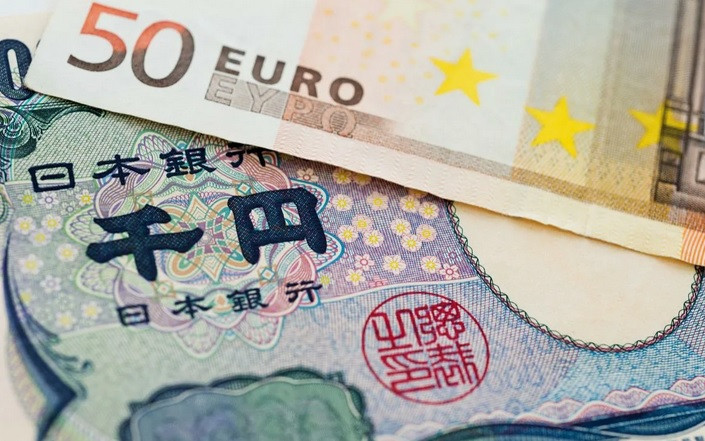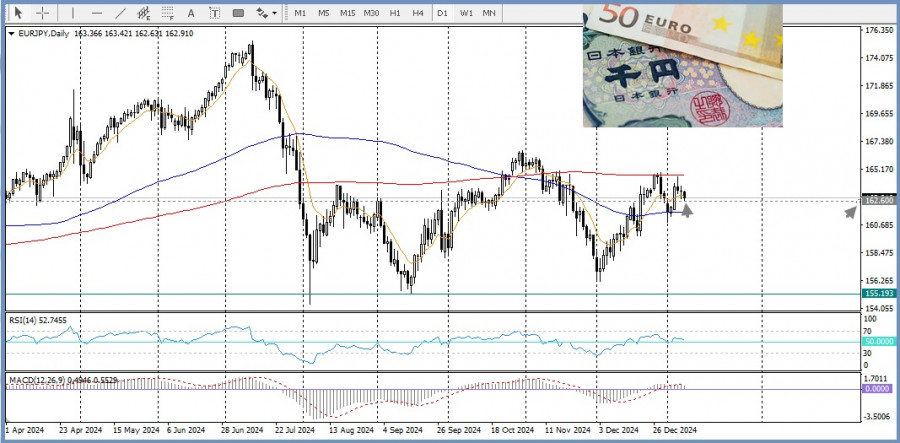See also


The EUR/JPY pair continues to face selling pressure, hitting a three-day low around 162.60 during the Asian session.
This decline is attributed to the strengthening Japanese yen, driven by positive economic data from Japan. Base wages increased by 2.7%, the highest level since 1992. Accelerating inflation, which rose from 2.6% to 3.4%, boosts expectations of an interest rate hike by the Bank of Japan, further supporting the yen and pressuring the EUR/JPY pair. Additionally, cautious market sentiment, geopolitical risks, and concerns over trade wars enhance the yen's status as a safe-haven currency.
Meanwhile, the euro faces pressure from weak economic data out of Germany. Specifically, German manufacturing orders unexpectedly fell by 5.4% in November, while retail sales dropped by 0.6%. These figures exacerbate concerns about eurozone economic instability and reinforce the dovish stance of the European Central Bank.
From a technical perspective, the recent failure to break above the 200-day Simple Moving Average (SMA) also signals bearish market sentiment, suggesting the short-term trend for EUR/JPY may continue downward. However, oscillators on the daily chart remain in positive territory. While the fundamental outlook is unfavorable for the euro against the yen, sellers should exercise caution as not all technical factors align with the bearish fundamental narrative.
You have already liked this post today
*The market analysis posted here is meant to increase your awareness, but not to give instructions to make a trade.




